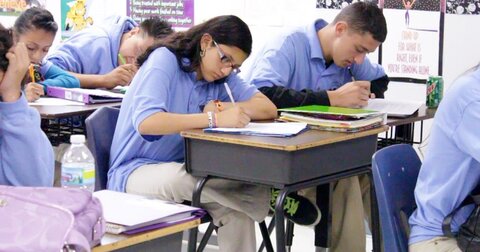No Accountability? 30 Percent of Detroit's Charter Schools Have Closed
22 charters have shuttered since 1994
A 1994 law introduced public charter schools to the state of Michigan. Since that time, about 30 percent of the charters that have opened their doors within the city of Detroit have been forced to close by their authorizers.
Over that period, 72 of the taxpayer-funded schools — otherwise known as "public school academies" — have been authorized in the city, including a few overseen by the Detroit school district itself. Of these 72 schools, 22 were later closed due to financial, academic or enrollment issues.
Unlike conventional public schools, charters have no semi-monopoly on educating children who live within a certain ZIP code. Instead, they must build their enrollment by appealing to parents who want something better for their children than what the local conventional public school provides. If a charter school fails to deliver, then parents are free to send their children somewhere else. If enough parents at a charter school do this, the school may be forced to close.
Also, if a charter school fails to meet the standards and conditions stipulated by the institution that chartered it — usually a state university — the school can lose its charter, and must then close.
“Unfortunately, there is a myth that charter schools don't close in Detroit,” said Audrey Spalding, the director of education policy at the Mackinac Center for Public Policy. “But it's not true. A large number — 22 — of Detroit charter schools have closed for academic or financial reasons.”
Charter schools have been controversial here since the first ones began creating competition for the unionized conventional school districts that previously had a complete monopoly on state public education dollars. Most charters serve lower income populations that also experience lower educational attainment. Evidence suggests that despite the 22 closed schools (or perhaps because of them), charters have served Detroit families well.
The most recent evidence came in March from Stanford University’s Center for Research on Education Outcomes (CREDO). It found that students in Detroit charters are getting a better education in reading and math than their peers in the city’s conventional public schools. Specifically, for each year students spend in Detroit charter schools, they receive the equivalent of a few weeks to as much as several months of additional learning in reading and math.
Nevertheless, two proposals currently under active consideration could restrict or even shut down charter schools in the city. A proposal from Gov. Rick Snyder, and another by a group called the Coalition for the Future of Detroit Schoolchildren would essentially turn over decisions on whether and how many independent charter schools could exist in the Detroit area to the city's elected school board, which has traditionally been hostile to the competing institutions.
In contrast, the Great Lakes Education Project has proposed changes considered more friendly to Detroit charter schools.
"We need to reject the false narrative from the anti-choice crowd that poor-performing charter schools are running amok in the state,” said Gary Naeyaert, executive director of the Great Lakes Education Project. “The facts are that while more than 80 charter public schools have been closed for poor performance, not a single traditional public school has ever been shut down for academic failure.”
The authors of the Stanford CREDO charter school study said that Detroit charter schools should serve as a model for other communities. These scholars' research does not always favor charters, however. On July 22, CREDO released a study that found charter schools in Texas show less progress in both reading and mathematics compared to their conventional district peers.
Michigan Capitol Confidential is the news source produced by the Mackinac Center for Public Policy. Michigan Capitol Confidential reports with a free-market news perspective.


 In Detroit schools, nothing succeeds like failure
In Detroit schools, nothing succeeds like failure
 Detroit school district took 73 days to produce public records
Detroit school district took 73 days to produce public records
 Detroit charter network up for $1 million award
Detroit charter network up for $1 million award